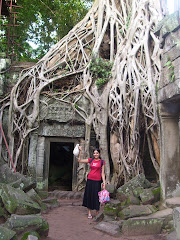1. Serious
Men – Manu Joseph
This is an engaging read. The novel is primarily from the viewpoint of a Dalit
protagonist working in clerical position in a premier research institute in
Mumbai and how he tries to fool/subvert the hierarchy and promote his son as a prodigy.
Some funny invented quotes from this book:
“If ancient
Indians were really the first to calculate the distance between the Earth and
the Moon, why is it that they were not the first to land there? I look at the
great claims of old civilizations that they have done this and that with great
suspicion” – Neil Armstrong
“Reservations
for the low castes in colleges is a very unfair system. To compensate, let us offer
the Brahmins the right to be treated as animals for 3000 years and at the end
of it let’s give them a 15 per cent reservation”—Vallumpuri John
“It
is a myth that Sanskrit is the best language for writing computer code.
Patriotic Indians have spread this lie for many tears” – Bill Gates
“If
you want to understand India, don’t talk to Indians who speak in English.” –
Salman Rushdie
Recommended?
Yes, for the inter-caste dynamics and strong character development.
2.
Interpretation of Murder – Jed Rubenfeld
It is a psychological thriller set in early 20th century New York
with real life characters, including Sigmund Freud and Carl Jung. It was riveting
to begin with but did not leave any major lasting impression. What I did like
about this book was the early 20th century description of New York City,
building of skyscrapers, and the upper-class society shenanigans, and linking
Freud’s psychodynamic theory to the thoughts and behavior of the main female
character, Nora Acton. It becomes weary reading in the last 40 pages or so. Jung’s
character and his tussle with Freud is another novelty in this book. Jung was
apparently anti-semitic (?!). The end is shocking when the killer’s identity is
revealed, but it is still not satisfying. I may have outgrown this genre
altogether.
Side note: Rubenfeld is the husband of Amy Chua, the
famous author of Battle Hymn of the Tiger
Mom, who became quite a rage in the parenting field.
Recommended?
Only in two cases: 1.You are a student of psychology and want to know more
about Freud’s theory in action; or 2. You have nothing more substantial to
read.
3.
Magic Seeds – VS Naipaul
My first full Naipaul fiction. He is astute in his observations of human nature. Somewhat negative (pessimistic) in his opinions about human thoughts and behavior. The main character, Willie’s thoughts are mentioned more than his words. There is a certain despondency in the main characters, Willie and his sister Sarojini, and Willie’s friend, Roger. Willie and to a certain extent, Sarojini, seem to lack agency and are mostly drifting in and out of extreme situations (sometimes of poverty and relative luxury) without influencing their sense of well-being in any extreme way. This fits well with the affective forecasting bias demonstrated in cognitive psychology. This bias basically states that our happiness is not dramatically altered over the long run, even if we run into great fortune or extreme misfortune on either ends of the spectrum. Or we overestimate the emotional impact of a future event in intensity and duration.
Naipaul always places his characters and plots in a
particular historical context, which makes it believable and honest. There is
not a single false note in his work. So the almost fatalistic perspective of
Willie and Sarojini may fit in well with Naipaul’s understanding of Indian
thought. His description of Willie’s first few days in India after a long time
is stellar, where every activity seems like a struggle, compared to the smooth
flow of things in an organized society like Germany. All of his characters feel
foolish at several points of their stories. It may be a universal theme he
subscribes to.
He is often witty. Page 286- ‘Roger said, “We are meant to dance through the night. No, not through.
That sounds too much like hard labour. We are meant to dance away the night.”’
Some parts I liked, either for their profoundness or
wit or both:
‘I
never wanted to die full of hate and rage, like my father. I wanted to go like
Van Gogh, as I have told you. Smoking my pipe, or doing the equivalent of that.
Contemplating my art, or my life, since I have no art, and feeling hatred for
no one. I wonder if I’ll have the courage or the strength of the great man.
Already I begin to feel, as yet in a small way, the great solace of hate.’-
p. 282.
‘It
is wrong to have an ideal view of the world. That’s where the mischief starts.
That’s where everything starts unraveling. But I can’t write to Sarojini about
that.’ – p. 294.
‘..I
think I should get some undemanding little job somewhere and live in some
little flat somewhere and hope that the neighbors are not too noisy. But I know
enough now to understand that life can never be simplified like that, and there
would be some little trap or flaw in that dream of simplicity, of just letting
one’s life pass by, of treating one’s life only as a way of passing the time.’
– p. 285.
Recommended?
Highly.











